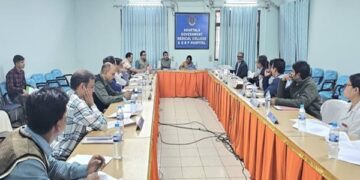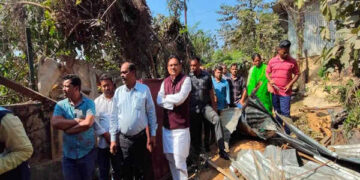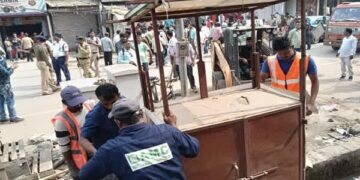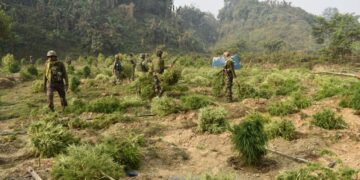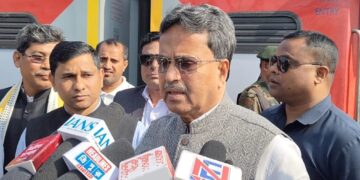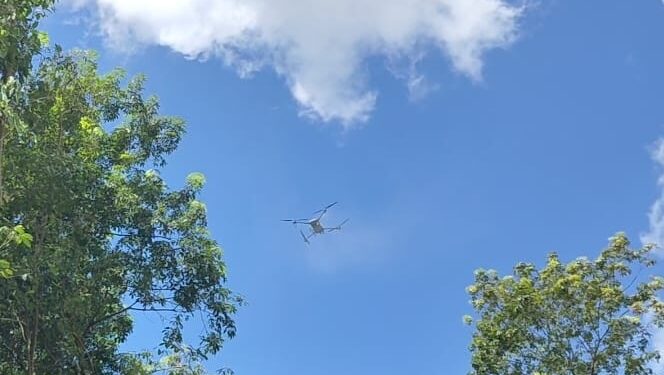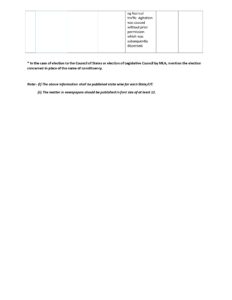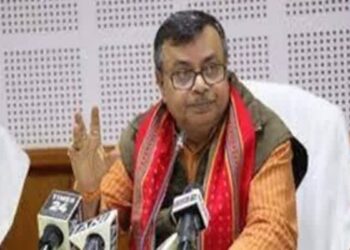Agartala, September 4: For the first time in Tripura’s history, drones have been deployed to spray fungicides on rubber plantations after the outbreak of Phytophthora fungus, which causes abnormal leaf fall and bark canker, threatening latex yield and posing a severe risk to the state’s rubber economy.
The Rubber Board of India, which detected the disease for the first time in Tripura this July, has taken urgent steps to contain the outbreak. With no drone facilities available locally, the Board hired drones and operators from Tamil Nadu to launch large-scale spraying operations from Thursday morning at Purba Champamura village under Bishalgarh subdivision.
According to officials, the disease was first reported in parts of Gomati and Sepahijala districts in July, affecting about 110 hectares. Within a month, it spread rapidly across nearly 3,000 hectares spanning Sepahijala, Gomati, and West Tripura districts. The abnormal rainfall this year worsened the outbreak, leaving many cultivators alarmed as leaves of mature rubber plants fell prematurely, and in some cases, entire trees perished.
Prompt action was taken by the Rubber Board with both preventive and curative medicines. Drones, equipped with specialized spraying devices, have started sprinkling the fungicides to ensure uniform coverage from top to bottom of the trees and spraying will continue across the affected districts of the state to protect plantations.
Growers said many had already stopped collecting latex as the disease spread, causing significant economic distress. The Rubber Board’s intervention has come as a lifeline for over 1.67 lakh rubber cultivators in the state, including a large section of indigenous growers, who together manage over 1.34 lakh hectares of plantations.
Experts noted that drones offer multiple benefits, including precision, efficiency, reduced labor, and lower chemical use compared to traditional manual spraying. Cultivators have expressed relief, with the Tripura Rubber Growers’ Association thanking the Rubber Board for its timely response.
Rubber, first introduced in Tripura in 1963 by the Forest Department and formally supported by the Rubber Board since 1967, is now the backbone of the state’s rural economy. Tripura is India’s second-largest producer of natural rubber after Kerala, and the sector continues to play a critical role in providing livelihood security and combating poverty.
The current drone-led operation is expected to be a turning point in saving the plantations from further damage and securing the livelihoods of lakhs of cultivators.


